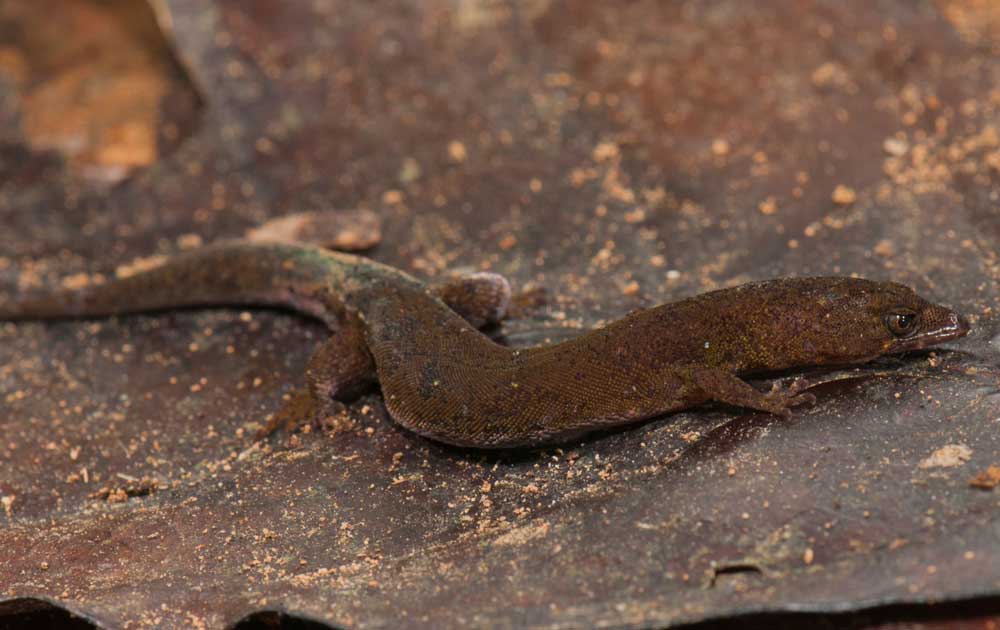While specimens were collected in 2002 and 2014 in evergreen forests of the country’s Paria Peninsula in northeastern Venezuela, it wasn’t until October 2024 that the research paper detailing the new species was published
University of Texas biologists have discovered a new gecko species in Venezuela. The gecko, Pseudogonatodes fuscofortunatus is about 2.5 inches in length and is brown in coloration. It has a cone shaped head, a long snout, eyes like Sauron and was determined to be a new species based on molecular genetics, visual examination and and high-resolution X-ray computed tomography scans.
The researchers noted that the gecko has skeletal features unlike other similar geckos of the genus Pseudogonatodes, including fully separated nasal bones and fused parietal bones.
“The Paria Peninsula, part of the Coastal Mountain Range of Venezuela, has been a hotspot for reptile and amphibian discoveries in recent decades,” Walter E. Schargel, a professor of instruction in biology and earth and environmental sciences at UT Arlington and lead author of the paper said in a press release put out by the university.
“The region’s complex geography and climate create diverse habitats that can support a wide range of species. The new gecko species adds to the growing list of reptiles that live only in this area, emphasizing the need for continued exploration and conservation efforts in the region.”
While specimens were collected in 2002 and 2014 in evergreen forests of the country’s Paria Peninsula in northeastern Venezuela, it wasn’t until October 2024 that the research paper detailing the new species was published.
“This discovery not only enriches our understanding of the biodiversity in this part of Venezuela, but it underscores the significance of preserving these unique ecosystems,” Dr. Schargel said. “I hope this discovery fuels increased conservation measures to protect the habitats of this rare species and other native species in the region.”
The paper, “Morphology and molecular systematics support a new species of Pseudogonatodes (Squamata: Gekkota: Sphaerodactylidae) from Venezuela with a remarkable telescoped skull” was published last month in the Zoological Journal of the Linnean Society.


